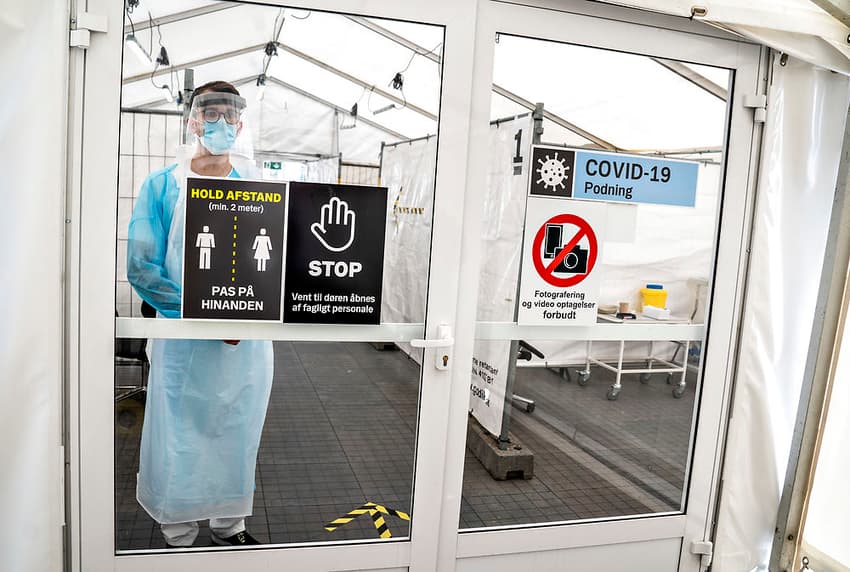Denmark records highest-ever daily total of new Covid-19 cases

A further 678 new infections with coronavirus were registered in Denmark on Friday.
The figure, registered by national agency State Serum Institute, is comfortably the highest 24-hour total for new cases in Denmark since the outset of the Covid-19 pandemic.
It should be noted that testing in Denmark is now far more widespread than during the first peak of the virus in the spring. 53,885 new tests are included in the latest update.
On no previous occasions has over 600 new cases of the virus been registered in one day in Denmark. The previous highest total, 589, occurred on September 19th.
Hospitalisations increased from 95 to 101 on Friday, having jumped by 17 between Wednesday and Thursday.
The number of hospitalisations with the virus is therefore back in three figures for the first time since early June.
Of the 101 admitted patients, 25 are in intensive care and 9 are receiving ventilator treatment.
Two people passed away from the virus in Denmark since the previous daily update. Denmark’s coronavirus death toll now stands at 647.
READ ALSO: Around Europe: How countries are battling to prevent a second wave of Covid-19
Comments
See Also
The figure, registered by national agency State Serum Institute, is comfortably the highest 24-hour total for new cases in Denmark since the outset of the Covid-19 pandemic.
It should be noted that testing in Denmark is now far more widespread than during the first peak of the virus in the spring. 53,885 new tests are included in the latest update.
On no previous occasions has over 600 new cases of the virus been registered in one day in Denmark. The previous highest total, 589, occurred on September 19th.
Hospitalisations increased from 95 to 101 on Friday, having jumped by 17 between Wednesday and Thursday.
The number of hospitalisations with the virus is therefore back in three figures for the first time since early June.
Of the 101 admitted patients, 25 are in intensive care and 9 are receiving ventilator treatment.
Two people passed away from the virus in Denmark since the previous daily update. Denmark’s coronavirus death toll now stands at 647.
READ ALSO: Around Europe: How countries are battling to prevent a second wave of Covid-19
Join the conversation in our comments section below. Share your own views and experience and if you have a question or suggestion for our journalists then email us at [email protected].
Please keep comments civil, constructive and on topic – and make sure to read our terms of use before getting involved.
Please log in here to leave a comment.